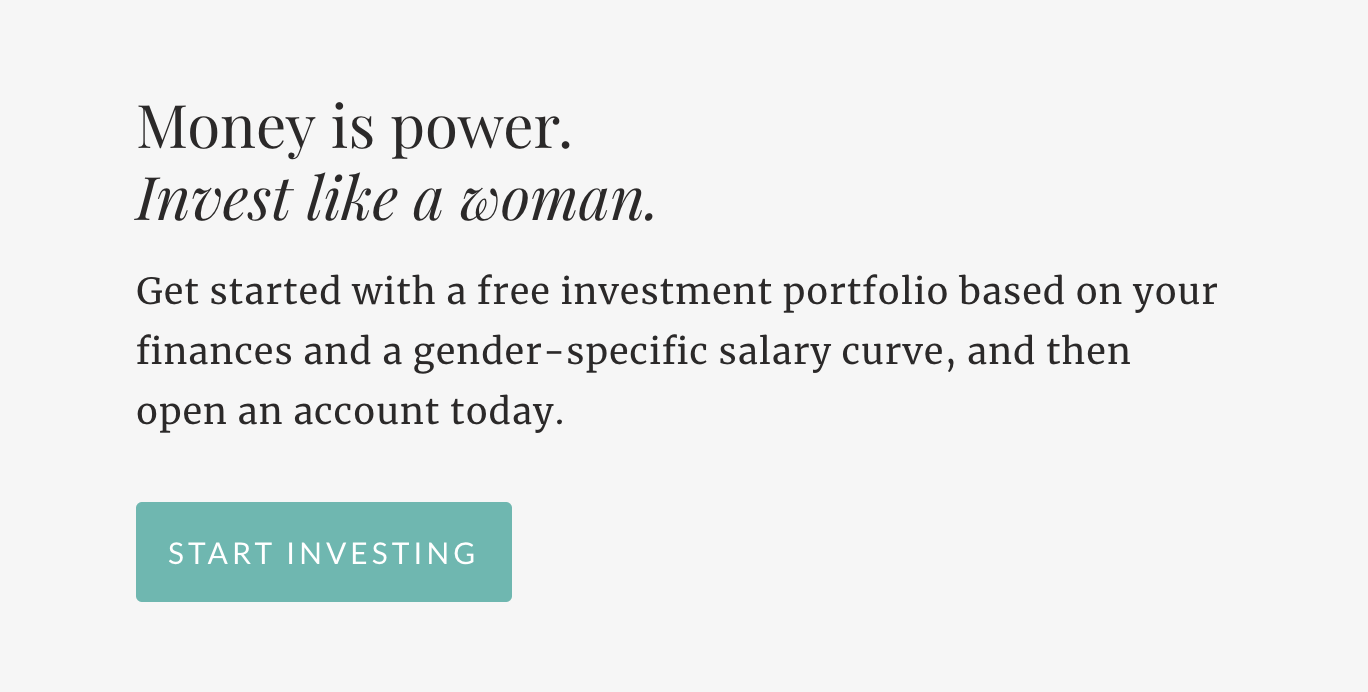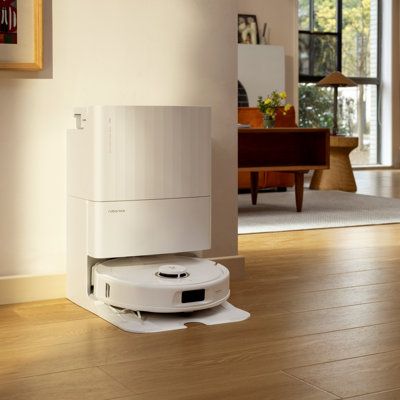Wildly successful women have a lot in common. From a steady work ethic to killer confidence and street smarts—they have the “it” factor—and while it may appear like it takes massive intellect to become successful, that isn’t necessarily always the case.
Thankfully, these days being a “successful woman” isn’t defined as just one thing. . . and while there are many ways to get to the top, there is usually one common denominator we’ve noticed among all successful women: they set good habits and they plan for their future (and that includes planning for their retirement and investing their money).
In theory, investing money is a no-brainer: You put a percentage of your money away and let time (and the “magic” of compounding) turn that loose change into a small fortune.
Why wouldn’t you do it?
Unfortunately, the truth is the majority of women aren’t investing their hard-earned cash, and it’s a hugely costly mistake. The recent market lurches can be enough to give any investor pause:
Maybe just keep your money in the bank? Nice and safe. Wait to invest.
Okay, but… there’s a price for that safety. That’s according to Sallie Krawcheck, the co-founder, and CEO of Ellevest, an innovative digital investment platform for women. The seasoned Wall Street veteran asserts that the gender investing gap — the notion that fewer women take part in the financial market — costs women at least $750,000 over the course of their lives, thereby exacerbating the gender wealth gap.
Depending on your salary and the market’s performance, the real cost of the investment gap over a 35-year career span could be more than $1 million. (Yes, I just said a million).** It’s a vicious, sexist financial cycle. “If women earn less and don’t invest those earnings, the gap gets bigger and bigger,” Krawcheck says. But it’s not just the money, it’s also about the financial freedom that comes with having money. Not having as much money as men can keep us in relationships we may not want to stay in, stay in a job we don’t like and can cause us to miss out on opportunities (like buying a house or starting a business).
We hear from a lot of women that they think they need to be a financial expert before they get started investing. You don’t. You only really need to know six basic things. That’s right: Six basic things before you get started. Here they are.
1. Make investing a habit
Number one: Investing should be a habit. This means you invest a bit out of each paycheck every month. You grew up learning about putting money in a savings account. Investing is the next step: start putting money in an investment account where your money will be invested in the markets and you get a chance of earning returns.
So, forget about “timing the market.” It seems like the popular way to define a “good investor” is someone who magically knows when to buy and sell to make the greatest return. The truth is, almost no one (even those who do it for a living) does this well. Data shows that just 0.1% of money managers outperform the markets over a 5-year period. Instead, when you invest steadily, sometimes you’ll “buy low” and sometimes you’ll “buy high.” But overall, you may see market-like returns over time.
Investing can help you reach financial goals that you may have—and the sooner you get started, the more time your money will have to grow. That’s why the right time to take your money out of the bank and invest is almost always “now,” so that the power of compounding can begin to work its “magic.”
Ready to start investing? Get started investing in minutes with Ellevest, a company designed by women, for women with no minimum to start.

Ellevest is an easy online investing tool using algorithms tailored to your salary, gender, and lifespan (aka your real life).
⇒ Get Started Investing With Ellevest
2. Make sure to diversify
Number two: Diversify. Invest in a well-diversified investment portfolio with a mix of different types of securities. Investing in a single stock? I know you have some friend who said they made a fortune from it, but it’s a bad idea … even if you think it’ll go up forever. You just don’t know.
You know instinctively that diversity is a good thing: A range of different personality types at work make a great team. Keeping a few irons in the fire is better than putting all your eggs in one basket. Think you need a lot to invest? You really don’t – all it takes it $1 to make your first investment. It’s your money. Make it work for you. Get started today.
In a planning mood? See how an investment plan could help you manage your finances. Ellevest is one way to do it. You can get a personalized portfolio in under 10 min. And it’s made by women, for women.
⇒ Get Started Investing With Ellevest
3. Keep costs low
Number three: Work to keep your cost and fees low. WTF? (What’s the fee?): Remember when we explained how compounding may help you earn money on the money you invest? And we showed how your money may grow when you keep contributing to your investment accounts? Don’t worry, that’s still true — but we need to address the creepers of the investing world. Fees, and how to keep yours low.
At Ellevest, they advise investing in low-cost exchange-traded funds, otherwise known as ETFs, where possible. And for a digital adviser, the management fee, the amount that adviser charges you, should be well below 1%. Ellevest’s are below that. So, don’t be afraid to ask how much you’ll be charged.
How do you start? Easy. You head to their website (here you go!), fill out a short questionnaire. Then, Ellevest suggests personalized investment portfolios that you can edit and set up with recurring deposits — so you don’t even miss the money.
4. Ask: Are you a fiduciary?
Number four: When you invest, work with a fiduciary. That’s someone who is obligated to put their clients best interests ahead of their own. It also means a fiduciary must offer you suitable investments, appropriate for your risk-capacity, and financial goals. And believe it or not, not every financial service firm has to do this, but at Ellevest they think it’s a no-brainer. The are a fiduciary.
In your investing quest, you may also encounter broker-dealers. Broker-dealers may also be called “financial advisors,” but they are not investment advisors or fiduciaries. They are not legally obligated to tell you when they have an interest in the security they are recommending for you. Yup, so the person you are hoping is watching out for your best interest is actually acting in their best interest. So, make sure to ask.
5. Get more conservative as you go
Number five: Get more conservative as you go. When you start investing in a retirement account at an early age, you may have a lot more in stock or stock-based securities. Though stocks are riskier, they may offer a higher return.
Number four: Change gears as you get older or closer to what you’re investing in. We usually recommend shifting your investments so they’re less risky the older you get or the closer you get to your goal date.
6. Don’t wait to invest. (Seriously.)
And six, don’t wait to invest. I know it’s easy to wait, but make it a habit. Invest a little or a little more out of every paycheck, whatever works for you and your budget. And that’s why Ellevest has no minimum account size.
So, six things. Now you know.
Bottom line
It can be fun spending money. It can be even more fun watching your savings grow. You’ll thank us later.
For when you don’t have a retirement fund…
Don’t sound the alarm – yet. Ellevest can get you set up in less than 10 minutes so you can reach all of your money goals. Sans judgment, finance jargon, and trust issues. Crisis averted. Get into it here.*
Here are more money topics for you…
Answered: 401(k) vs. IRA? Use Both If You Can
How Much You Should Be Spending On Clothing and Beauty Every Month
I’m Self-Employed: What Are My Retirement Options?
Disclosures: We’re excited to be working with Ellevest to start this conversation about women and money. We receive compensation if you become an Ellevest client.








